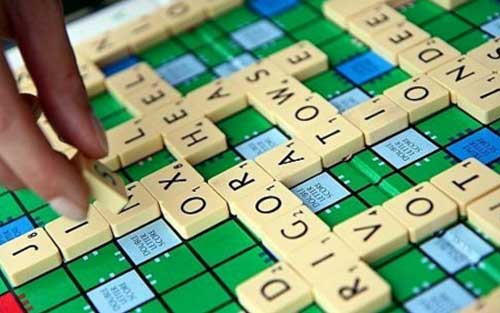be是
英语动词中比较特殊的一类动词,其使用频率很高,牵涉到各种句型、时态和语态等用法,下面小编告诉你
英语单词be动词的用法,大家一起来看看吧!
英语单词be动词的用法:
一、系动词be
作为系动词(也叫连系动词,link verb)的be,是英语学习者接触最早的用法,而且其用法也很多。其基本含义为“是”,基本用法结构为“主语+be+表语”,也就是我们常说的主系表结构,其中的表语一般都由名词、形容词、数词或表地点、时间等的短语来充当。
系动词be有各种时态的变化,也会和情态动词连用。
(一)be的时态变化
系动词be会有一般现在时、一般过去时、一般将来时、现在完成时、过去完成时等的时态变化。如:
He isa student.
They werein the park yesterday.
It will be cloudy tomorrow.
He has been ill for six days.
It had been three hours before she left the hat shop.
(二)be与情态动词的连用
其用法为:情态动词+系动词be原形。如:
It must be Lucy's book. Her name is on the cover.
It can be very difficult for us to memorize too many words within such a short time.
She should be here on time tomorrow.
二、助动词be
作为助动词,be没有具体含义,而是与主要动词一起构成句子的谓语动词。这种情况下,be主要用来构成进行时和被动语态。
(一)进行时态中的be
此时,be可以与主要动词的现在分词一起,构成各种进行时态。如:
He is reading in the library now. (现在进行时)
She wasswimming in the river this time yesterday. (过去进行时)
They will be arriving in Beijing tomorrow. (将来进行时)
We have been learning English for ten years. (现在完成进行时)
(二)被动语态中的be
助动词be能够与主要动词的过去分词一起构成被动语态,即be done结构。如:
Chinese iswidely used around the world nowadays.
The window wasbroken by the naughty boy just now.
Your watch has already beenrepaired.
【注意】
助动词be能够构成特殊句型。如:
1、be going to do
be going to do表示“打算或将要”。如:
He isgoing to visit us next week.
It isgoing to rain soon.
2、be about to do
be about to do表示“刚要,即将”。与be going to do表“将要”不同的是,be about to do表示的是说完话后马上就要去做或是短期内马上就要去做。如:
The plane isabout to take off in five minutes' time.
3、be to do
be to do表示“按计划要做”。如:
One night an angel came to Mary and told her that she wasto have this special boy.
The new store isto be opened tomorrow.
三、特殊句型中的be
(一)There be句型
与上面用法都不同的是,be可以与there一起构成there be句型,用来表示存在。考虑到There be句型较为重要,内容较多,在此不做赘述,后面再找时间跟大家单独分享。今天就先给几个常见的例句。
There is a white ruler on the desk.
There were a great many people in the car race last year.
(二)祈使句中的be
这种情况下,句子一般以Be开头或是Don't be开头,表示命令或建议等。如:
Bepatient! (耐心点!)
Don't be so hard on me! (不要对我们这么严厉!)
(三)虚拟语气中的be
be有时可以放在句首,引起虚拟语气。如:
Be he rich or poor, she will marry him.
Be it true or not, she will see it herself.
此时的be引导的句子其实相当于一个让步状语从句。以上两句话就相当于:
Whether he be rich or poor, she will marry him. (无论他是否有钱,她都会嫁给她。)
Whether it be true or not, she will see it herself. (无论这是否是真的,她都会亲自去见证。)
imagine后接动词和从句的用法:
1. 表示“想象”,其后可接动名词(可以有逻辑主语),但不能接不定式。如:
Try to imagine being on the moon. 设法想象你是在月球上。
I can’t imagine my mother approving. 我不能想象我母亲也赞成。
注意,imagine 后不接不定式或不定式的复合结构,但有时可接带不定式 to be 的复合结构(to be 有时可省略或换成as)。如:
I was surprised when I saw the farm. I had imagined it to be much bigger. 我看到那个农场时很吃惊,我原认为会它会大得多。
I had imagined him (to be, as) an old man. 我原认为他是位老人。
3. 表示“想”“认为”,后接 that 从句时,若从句为否定,通常将其否定转移到主句上。如:
I don’t imagine that he will come. 我想他不会来的。
在简略说法中可用 so, not 代替 that 从句。如:
A:Will he come? 他会来吗?
B:I imagine so (not). 我想会来(不会来了)。
hurt的本义、引申义及用法辨析:
1. 用于本义,表示身体上的“受伤”“疼痛”,此时通常通常连用的副词修饰语有 badly, seriously, slightly 等。如:
Jim didn’t look seriously hurt. 看上去吉姆伤得并不严重。
They were badly hurt in the accident. 他们在事故中受了重伤。
2. 用于引申义,表示感情上的“伤害”,此时通常连用的副词修饰语有deeply, extremely, really, terribly, very (much), greatly 等。如:
Her remark hurt him deeply. 她的话深深地伤害了他。
I was very much hurt at what he said. 听了他的话我很痛心。
3. be hurt后可接动词不定式或that从句。如:
She was hurt to think of his being left alone. 想到他一个人留在那儿她就难受。
She was hurt that I had not gone to her party. 我没去参加她的晚会,她感到不快。
4. 注意hurt, injure, wound的区别:
(1) hurt属普通用词,指身体上的受伤,可轻可重,常带有较强的疼痛感。另外它还经常用于比喻义,表示精神或感情上的伤害。
(2) injure与hurt的含义较为接近,但更正式,主要指人在意外事故中受到伤害。如:
In the accident 10 people died and 20 were seriously injured. 在这次事故中,有10人死亡,20人受重伤。
有时也用于比喻义。如:
Smoking will injure your health. 抽烟会损害你的健康。
Her refusal injured his pride. 她拒绝他,伤害了他的自尊心。
(3) wound 主要指外界暴力或用武器造成的较重的身体上的伤害,多用于战斗或作战等场合。如:
The soldier was badly wounded in the head. 这位士兵头部受了重伤。
(4) 从用法上看,过去分词wounded和injured均可用于名词前作定语,而用作过去分词的 hurt则很少这样用。如:
The wounded [injured] soldier was well looked after. 这个受伤的士兵受到了很好的照顾。
(5) the injured和the wounded均可用作名词,意为“受伤的人”(具有复数意义),但一般不用the hurt来表示类似意义。如:
The injured [wounded] were sent to hospital. 受伤的人被送往医院。
动词hear的相关用法与语法:
1. 表示“听见”,通常为及物动词,多指无意识的动作。如:
He listened but heard nothing. 他注意听,但什么也没听见。
Suddenly I heard a strange noise. 我突然听到一种奇怪的响声。
若表示“倾听”“听取”等,则表示有意识的动作。如:
I’m interested to hear your opinion. 我想听听你的意见。
We’d better hear what they have to say. 我们还是听听他们要说什么吧。
另外,hear 通常为及物动词,但有时也用作不及物动词。如:
She doesn’t hear very well. 她听力不太好。
2. 表示“听见”,其后可接复合宾语,其中的宾语补足语可以是:
(1) 动词原形(即不带to的不定式)。表示听到了动作的全过程。如:
I heard him come in last night. 我昨夜听见他进来的。
I heard him open the door and go out. 我听见他打开门,走了出去。
但是,如果hear为被动语态,则其后的不定式必须带to。比较:
I heard him go down the stairs. 我听见他下楼了。
He was heard to go down the stairs. 有人听见他下楼了。
(2) 现在分词。表示听见动作正在进行。如:
I heard somebody singing in the next room. 我听见有人在隔壁屋里唱歌。
有时我们用现在分词可能不是表示动作在进行,而是表示动作在反复。如:
I heard someone knocking at the door. 我听见有人敲门。
注意,对于那些即不能“进行”也不能“反复”的动作,则不能用现在分词,要用不带to的不定式,如下面一句中的explode就不能改为exploding:
I heard the bomb explode. 我听见炸弹爆炸了。
(3) 过去分词。表示宾语与宾语补足语之间为被动关系。如:
I heard my name called. 我听到有人叫我的名字。
I’ve heard him criticized many times. 我曾听见他多次受到批评。
3. 比较:hear=听见;hear about=听说,得知;hear of=听说,得知。如:
I have never heard about such a man. 我从未听说过这样一个人。
I heard of his death last week. 我上周听说他死了。
注意hear sb doing sth与 hear about (of) sb doing sth意思不同。如:
Have you heard about Jim coming here? 你听说了吉姆要来这里吗?
I’ve never heard of anyone doing a thing like that. 我从未听人说过会有人做那种事。
另外,hear of还可表示“允许”“考虑”,主要用于否定句,尤与 won’t 等连用。如:
He wouldn’t hear of my going away. 他不让我走。
She just won’t hear of such an idea. 她完全不同意这样一个想法。
Hear about还可表示“因……受到报偿或惩罚”。如:
You damaged the bike and you will hear about it. 你把自行车弄坏了,等着挨骂吧。
4. 注意以下两个常用短语:
(1) hear from 从……听来;收到……的来信。如:
I heard this from my friend. 这是我从朋友那听来的。
Have you heard from him recently? 你最近收到他的信了吗?
(2) hear out 听完(某人的话)。如:
Please hear me out. 请听我把话说完。
I know you’re angry but you could at least hear me out. 我知道你很生气,但至少你让我把话说完。
